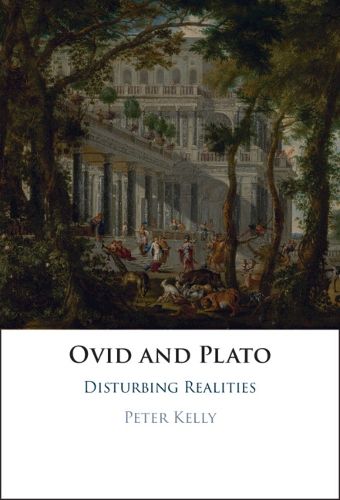Readings Newsletter
Become a Readings Member to make your shopping experience even easier.
Sign in or sign up for free!
You’re not far away from qualifying for FREE standard shipping within Australia
You’ve qualified for FREE standard shipping within Australia
The cart is loading…






The Roman poet Ovid, while sailing across the Black Sea to Tomis, considered his exile to have cosmic proportions; in the surging waves he sees his world seemingly veering back towards primordial chaos. Throughout his work Ovid seeks to depict the vast heterogeneity of the world, its creation and destruction, and the interconnection between humans and their unstable environment. This book explores how Ovid turns to philosophy, and especially the dialogues of Plato, to find meaning in a world that is fluid, uncertain, and dangerous. Rather than seeking recourse in an exact science of knowledge or a world of Forms beyond the here and now, Ovid sets himself apart from the philosophers. Instead, he highlights the limits of philosophy to capture the changing nature of reality and realigns the boundaries between poetry and science so as to create a more suitable medium for representing our entanglement with this complex world.
$9.00 standard shipping within Australia
FREE standard shipping within Australia for orders over $100.00
Express & International shipping calculated at checkout
The Roman poet Ovid, while sailing across the Black Sea to Tomis, considered his exile to have cosmic proportions; in the surging waves he sees his world seemingly veering back towards primordial chaos. Throughout his work Ovid seeks to depict the vast heterogeneity of the world, its creation and destruction, and the interconnection between humans and their unstable environment. This book explores how Ovid turns to philosophy, and especially the dialogues of Plato, to find meaning in a world that is fluid, uncertain, and dangerous. Rather than seeking recourse in an exact science of knowledge or a world of Forms beyond the here and now, Ovid sets himself apart from the philosophers. Instead, he highlights the limits of philosophy to capture the changing nature of reality and realigns the boundaries between poetry and science so as to create a more suitable medium for representing our entanglement with this complex world.